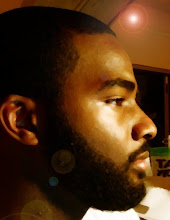The problem is that there has been no guidance to this process. It hasn't been based on any principle. I'm very good at rationalizing the changes I make, but that doesn't necessarily make them rational. I am in the wrong place. Ph.D., I can't stomach the tedium of scientific research--nor the inability to control the circumstances. I don't want to go to school in East Giblipp, and then do a post-doc in West Giblipp, and then teach at a school that will hire me in South Giblipp, making essentially peanuts, teaching students who will be making more than me in their first job out.
I hate engineering. I love creating new things. Or at least, I love thinking of new things to create. When it comes down to actually creating them, that's another matter. It's difficult to finish projects. I end up spinning and iterating over them, never progressing.
I'm certainly in the wrong career and the wrong industry, if not in the wrong field altogether. But that puts me back at square one and in search of direction. Furthermore, I cannot yet be sure that I'm at this point as a result of the new understanding I have, or rather this is just another impulsive move on my behalf.
In his book, Delivered from Distraction, Ed Hallowell listed seven habits of highly effective ADD adults (a play on the excellent book, The Seven Habits of Highly Effective People, by Stephen Covey). They are:
- Do what you're good at. Don't spend too much time trying to get good at what you're bad at.
- Delegate what you're bad at to others, as often as possible.
- Connect your energy to a creative outlet.
- Get well enough organized to achieve your goals.
- Ask for and heed advice from people you trust--and ignore, as best you can, the dream-breakers and finger waggers.
- Make sure you keep up regular contact with a few close friends.
- Go with your positive side. Even though you have a negative side, make decisions and run your life with your positive side.
So, I've created a list of my strengths and weaknesses.
Strengths
- Working in parallel
- Long-term memory
- Creativity
- Innovation
- Thinking out-of-the-box
- Thinking on my feet
- Intuition
- Empathy
- Rapidly filtering information to get to the most important aspects
- Collecting and synthesizing information from a wide variety of sources
- Managing chaos
- Working against a deadline
- Changing gears
- Passion
- Vision
- Determination & Resiliance
- Learning new skills
- Taking calculated risks
- Collaboration
- Planning
- Working in series
- Working memory
- Following through with things
- Following established procedure
- Communication
- Stepping through a source of information thoroughly and extracting detail
- Organizing
- Down-shifting
- Intimacy
- Sitting for long periods
- Listening for long periods
- Attention to detail
- Managing others
- Practicing skills over time
- Delayed gratification

No comments:
Post a Comment